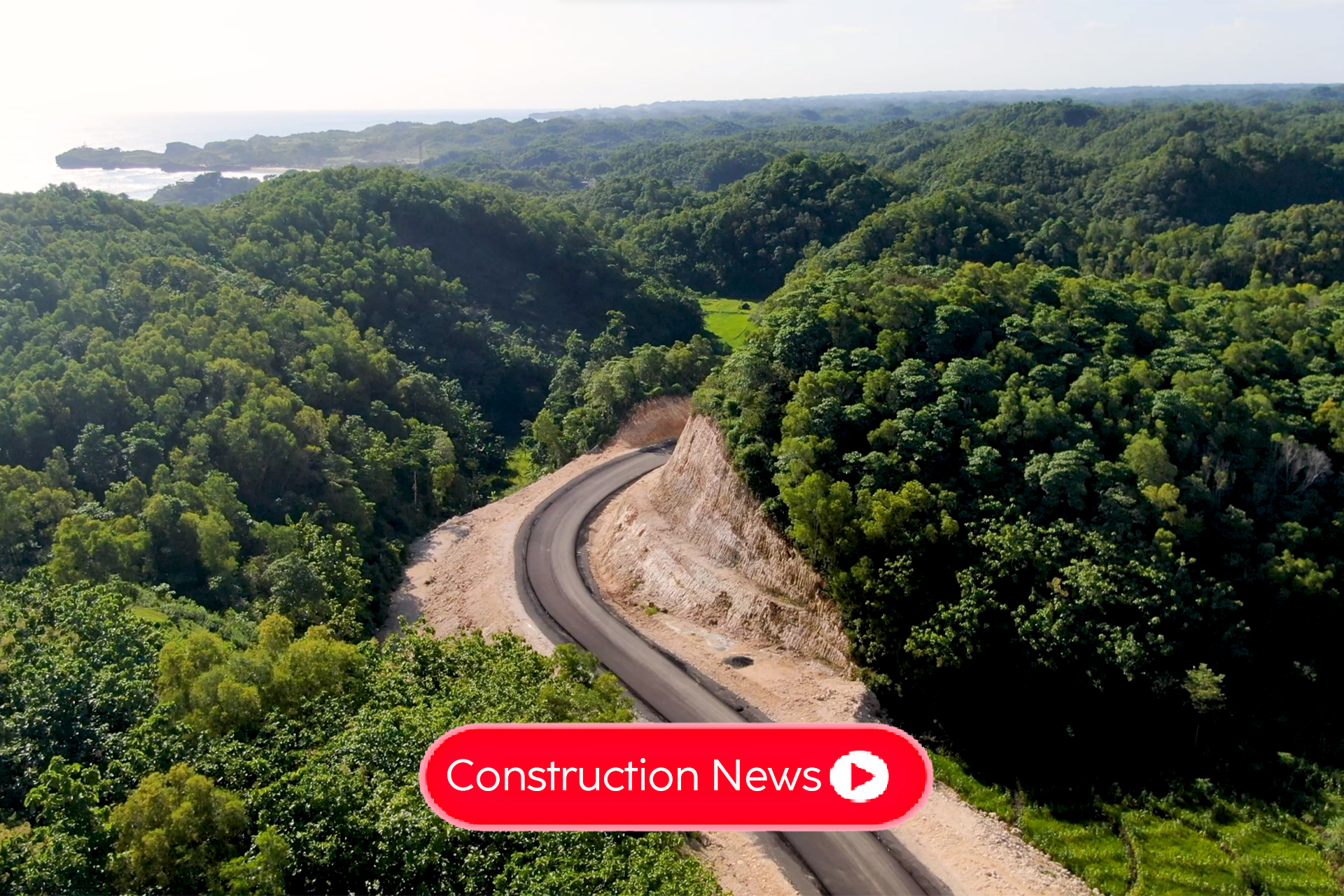The Indonesian government’s unyielding commitment to fostering robust economic growth remains manifest in its concerted efforts to accelerate the development of critical infrastructure throughout the archipelago. A linchpin in this endeavor is the National Strategic Project (PSN), a transformative initiative designed not only to rectify the country’s infrastructure deficiencies but also to rekindle investment momentum following the tumultuous global economic crisis of 2008-2012.
A salient point to consider is that during the aforementioned economic turbulence, Indonesia’s Infrastructure Stock languished at a mere 38% of its Gross Domestic Product (GDP), a stark disparity compared to the approximately 70% held by most advanced economies.
The genesis of PSN traces back to the year 2016 when it was first enshrined in the annals of the Medium-Term National Development Plan (RPJMN) for the 2015-2019 period. This strategic move was laser-focused on orchestrating massive and pivotal infrastructure development, an essential fulcrum for galvanizing the nation’s economic acceleration.
Notably, during the inauguration of the Decade of National Strategic Projects in Jakarta on September 13, 2023, President Joko Widodo, commonly referred to as Jokowi, underscored the core mission of the National Strategic Projects. He emphatically stated that these initiatives are inextricably linked to the betterment of the citizenry, unequivocally debunking any notion of them being a burden. It is of paramount significance that we recognize that over the past octennial span, a staggering 161 PSNs have been brought to fruition, providing gainful employment to an astonishing 11 million individuals.
Furthermore, President Jokowi astutely acknowledged that the advent of PSN infrastructure projects has engendered a conspicuous augmentation of Indonesia’s global competitiveness. This transformation is vividly underscored by the nation’s ascent from the 44th to the 34th position on the IMD World Competitiveness Index in the year 2022.
PSN to Overcome the Infrastructure Crisis
At the heart of the rationale underpinning PSN is the astute insight provided by Haryo Limanseto, the Head of the Communication, Information, and Conference Bureau (KLIP) at the Coordinating Ministry for Economic Affairs. He illuminated that the RPJMN for the 2015-2019 period elucidated an aggregate investment requirement estimated at a formidable Rp 4,796.2 trillion for infrastructure development. A sagacious recognition was made that the state budget, in isolation, was ill-equipped to meet this colossal demand. Consequently, the government strategically elected to institute PSN as the framework for identifying and prioritizing projects from the expansive spectrum outlined in RPJMN 2015-2019.
The projects integrated into the PSN portfolio were accorded an array of favorable conditions, including streamlined permitting processes, priority in project preparation, and the simplification of bureaucratic procedures. A crucial point to emphasize is that this approach did not circumvent the mandated permitting prerequisites, as was succinctly elucidated by Haryo on October 3, 2023.
Haryo further expounded that imperative documents such as the Environmental Impact Assessment (AMDAL) and the Feasibility Study continued to be obligatory. However, the submission process was subject to direct governmental oversight. Moreover, a suite of facilities, such as the Project Development Facility and Sovereign Guarantee, were made accessible to collaborative ventures between the government and the private sector.
Nonetheless, the enormity of the investment required for the PSN transcended the fiscal capacity of the state budget. Hence, the government wisely extended the ambit of those who could proffer suggestions for changes to the roster of PSN projects to include regional governments, private enterprises, and state-owned entities. This strategic expansion was calibrated to bridge the cavernous gap in infrastructure investment requirements.
Investment Growth is Encouraged by the PSN
The significance of the PSN projects cannot be overemphasized. Their introduction heralded a plethora of positive outcomes, generating not only an economic renaissance but also a pronounced uptick in investment within Indonesia. In this context, it is paramount to underscore that domestic investment has thrived in tandem with the emergence of PSN.
As reported, Perry Warjiyo, the Governor of the Bank of Indonesia, has attested to the sustained buoyancy of domestic investment, underscoring the pivotal role played by the ongoing completion of National Strategic Projects (PSN). His statement on October 19, 2023, accentuated the importance of these projects in fostering a robust investment climate within the country.
Tracking the Progress of PSN projects
Following a limited meeting, Airlangga Hartarto, the Minister of Economic Affairs Coordination, elucidated the multifaceted achievements in the realm of PSN development. This account encompassed projects that have been successfully concluded, those awaiting official inauguration, and those that have been temporarily halted.
With regard to completed projects, Airlangga revealed that as of October 4, 2023, a staggering total of 170 PSN projects had reached fruition, boasting an aggregate investment value of Rp 1,299.41 trillion. Simultaneously, 61 projects were at various stages of construction.
As of the aforementioned date, 17 PSNs had received the presidential seal of approval, with a combined investment value amounting to Rp 259.41 trillion. This constellation of projects encompassed illustrious initiatives such as the Jakarta-Bandung High-Speed Train, valued at Rp 125.7 trillion, and the Jakarta-Bekasi Integrated Toll Road (LRT) worth Rp 29.9 trillion. The array also included various industrial zones, dams, the Cinere-Jagorawi Toll Road, Serpong-Cinere, and the Pasuruan Toll Road.
It’s noteworthy that an additional 16 projects had not yet received the imprimatur for official inauguration but were on the cusp of completion, boasting a cumulative investment value of Rp 179.46 trillion. These projects spanned a wide spectrum, encompassing the Kisaran-Tebing Tinggi Toll Road, Likupang Port, Makassar New Port, Liquefied Natural Gas (LNG) Train 3 in West Papua, the Multifunctional Satellite Project, the Tangguh LNG Project, and several other dam constructions.
Meanwhile, Airlangga disclosed that there were 25 PSNs poised for completion by October 20, 2024, collectively representing an investment value of Rp 151.58 trillion. These projects spanned the realm of toll roads, industrial zones, airports, Benoa Tourism, and the University Islamic Campus. A subsequent period, extending from October 20 to December 2024, featured 12 PSNs with a combined value of Rp 23.45 trillion.
In terms of PSN projects with completion timelines extending beyond 2024, Airlangga highlighted the existence of 42 projects. These endeavors bore an estimated investment value of Rp 1,427.36 trillion, underscoring the unwavering government commitment to ensuring their optimal realization.




 20% off today. Whatsapp us!
20% off today. Whatsapp us!